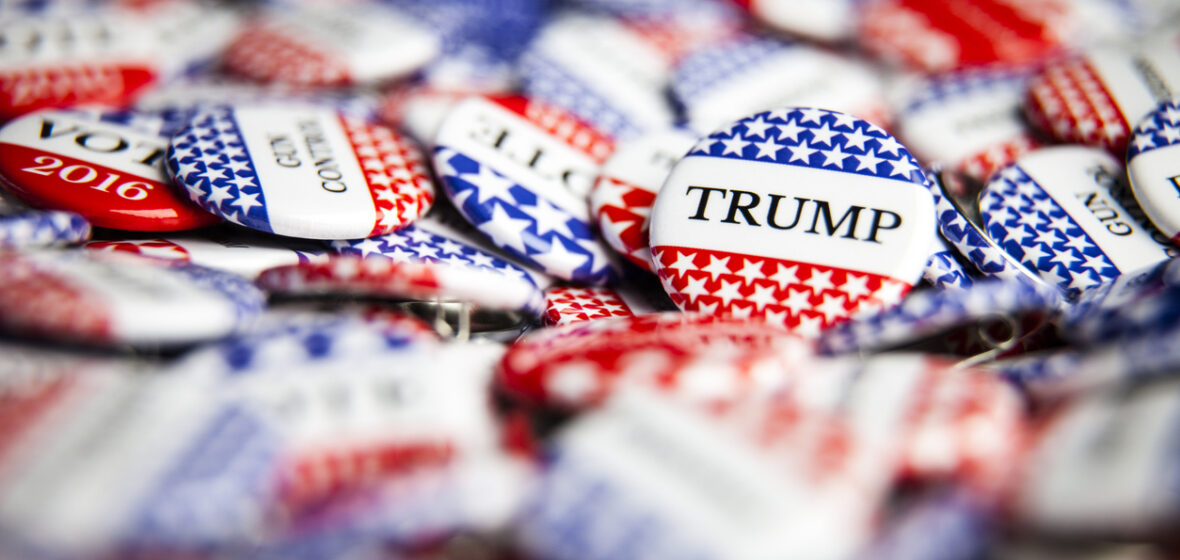Donald Trump, the former President of the United States and the frontrunner for the Republican nomination for President, has defeated Nikki Haley in the New Hampshire primary election, consolidating his lead after a dominant win in last week’s Iowa caucuses.
Following Trump’s victory in Iowa, Florida Governor Ron DeSantis (who finished second with 21 per cent of the vote) dropped out of the 2024 Republican Party presidential primaries. It was a dramatic fall from grace for a man who entered the race as the favourite to secure his party’s nomination and go on to defeat Joe Biden in November, but ultimately proved to be a stunted, somewhat awkward campaigner, lacking authenticity, unwilling to sharply criticise Trump and unable to differentiate himself sufficiently from the former President.
DeSantis’s exit offered promise for Nikki Haley, Trump’s former UN Ambassador, who is touted as the more moderate, traditional conservative candidate, a favourite among so-called “Never Trumpers”. Haley’s supporters held hope that the vast majority of Republican primary voters who had previously supported a candidate other than Trump would coalesce around Haley – the only surviving non-Trump candidate.
Observing the results in New Hampshire, it appears the optimism around Haley and her fans was somewhat manifested, somewhat misguided.
Trump received 51 per cent of the vote in Iowa, with Haley collecting 19 per cent. One week later in New Hampshire, Trump is estimated to end up with about 55 per cent of the vote, compared to Haley’s 44 per cent. That’s a promising 23 per cent jump for Haley, compared to a small gain of 4 per cent for Trump.
Despite Haley finishing second of just two candidates, her reasonably strong showing, which defied several polls predicting a much larger win for Trump, should be enough for her to stay in the race. She will be able to make the pitch to donors that a significant proportion (if not a majority) of Republican voters support her, and that with the financial help of the mainstream Republican establishment, she might just have a shot at unseating Trump.
Trump himself seems aware of the mixed results in New Hampshire, notably subdued in his victory speech.
But if the positivity around Haley is because she only lost New Hampshire by around 10 per cent, that hardly paints a rosy picture of her chances in obtaining the nomination.
Trump has now won clear victories in Iowa and New Hampshire, the two states where DeSantis and Haley campaigned most aggressively. In the long history of Republican presidential primary contests, every single candidate who won both Iowa and New Hampshire went on to secure the nomination, and what’s more impressive, Trump is the first non-incumbent to do so. He won Iowa by a record 30 per cent, he comfortably claimed New Hampshire – which is a far less conservative, less Trump-friendly state – and he leads by 50 per cent in national polls.
Despite Haley’s positive showing, Donald Trump is the presumptive Republican nominee for President, almost guaranteed to secure the nomination.
What’s next?
Trump and Haley will now fly west to Nevada for the state’s caucuses on February 8. Then it’s off to South Carolina on February 24, which is Haley’s home state, and one in which she must perform exceptionally well to continue to receive enough fundraising to stay in the race.
Two weeks later is Super Tuesday, a vaunted day in presidential primary politics, with 15 states holding primaries. In normal times, in a primary contest with no incumbent president, Super Tuesday is the biggest day of the primary season, making or breaking the remaining candidates.
This primary contest is decidedly not normal. Trump may not be an incumbent president, but the voters are treating him like one, and this time around, it will be a surprise if Haley – the last standing rival to Trump – even survives until Super Tuesday. After all, stranger things have happened.
Looking ahead to November
Many keen observers of U.S. politics, and perhaps those who, try as they might, simply can’t look away, will look at the results in Iowa and New Hampshire and declare Trump’s victory over Biden in November a fait accompli. There is an unrelenting optimism among Trump supporters, and a despairing pessimism among those who despise him (a bucket into which many Australians fall). But this leaves little room for careful scrutiny of the data.
Although Trump is not an incumbent president, he is campaigning as one, and unlike first-time candidates he is a known quantity. It is therefore of concern for his chances in November that close to half of Republican voters are choosing other candidates. Normally, voters who favour other candidates in primaries will coalesce around their party’s chosen candidate in November, as occurred for Biden in 2020 and Trump in 2016. But this time might be slightly different. In the gold-standard Iowa poll conducted ahead of the caucuses, 43 per cent of Nikki Haley supporters said they would back Biden over Trump, a sentiment that has been echoed in New Hampshire.
Trump is sure to win the vote of the vast majority of Republican voters, but it is those few on the edges – the less abrasive, more moderate conservatives – as well as independent voters, who will decide the election. Don’t let anyone tell you it’s going to be a blowout. There is so long to go, and so much to happen.




